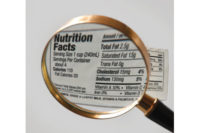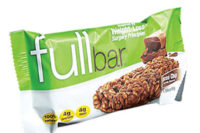Civil Litigation: Are You Next?

However, even as the number of regulatory actions rise, those involved in the food and beverage industries are more aware of an equal, if not greater, trend that threatens the very livelihood and existence of their businesses. That trend, which increased exponentially in 2011, is the filing of civil lawsuits against food, beverage and supplement companies by private litigants, district attorneys, consumer advocacy groups and, essentially, “professional plaintiffs” in areas traditionally the purview of the FDA and FTC. And hold on tight, because it doesn’t look as if the litigation wave will subside any time soon.
Some might argue that private plaintiffs have altruistically taken it upon themselves to step into the shoes of the FDA and the FTC and take industry companies to task for perceived violations of state and federal regulations, statutes and practices, because the FDA and FTC are spread too thinly to do it themselves. Realistically, however, there is a more self-serving reason for the marked increase in litigation: money. Plaintiff lawyers in California and elsewhere are lining up to bring civil actions—often seeking class action treatment—for alleged violations of state and federal regulations and laws, looking for big payoffs.
Adding to the problem is that, even if a company believes it can ultimately prove its advertising claims are legally permissible, the cost of doing battle to defend its claims over the next couple of years may leave it no choice but to settle the litigation and move on. In either case, whether a company decides to settle early or dig in for a long battle, it stands to lose big if it is not ever-vigilant regarding its regulatory compliance. The following are just a few areas to which industry companies should pay particular attention due to the marked increase in recent litigation.
Prop 65
Proposition 65 is a California initiative approved in 1986 as the Safe Drinking Water and Toxic Enforcement Act of 1986 (although it is better known as “Prop 65”). Pursuant to Prop 65, the State of California is required to publish a list of chemicals known to cause cancer or birth defects and other reproductive harm. The California Office of Environmental Health Hazard Assessment (OEHHA) administers the Prop 65 program, noting, “Prop 65 requires businesses to notify Californians about significant amounts of chemicals in the products they purchase, in their homes or workplaces, or that are released into the environment.” By mandating such information, Prop 65 is intended to enable people to make informed decisions about protecting themselves from exposure to these chemicals.
The California Attorney General’s Office is the primary agency responsible for enforcing Prop 65. Yet any district attorney or city attorney from a larger city may also enforce Prop 65. Additionally, any individual “acting in the public interest” may also enforce Prop 65 by filing a lawsuit. Many private individuals and companies have taken it upon themselves to so act in the public interest, often collecting significant sums of money as a result. One company in particular, the Environmental Research Center (ERC) (which is not even based in California, but rather, in Georgia), has filed the lion’s share of Prop 65 cases over the last two years, many targeted against dietary supplement companies. With penalties theoretically as high as $2,500 per day per violation, many companies are left with no practical choice but to settle their cases, frequently in amounts ranging from $60,000-80,000—amounts smaller companies simply cannot afford. In spite of ERC’s self-appointed enforcement of Prop 65 being called “legalized blackmail” by some in the dietary supplement and food industries, the head of the ERC has indicated that ERC has no intention of slowing down the pace of Prop 65 filings. Accordingly, food companies must ensure they are familiar with the requirements of Prop 65 if they are selling products in California.
All Natural Claims
For years, industry companies and consumers have begged federal agencies like the FDA and the FTC to formally define the term “natural,” to no avail. Without formal definition from these regulatory agencies, the number of lawsuits challenging “all natural” and “100% natural” claims has increased substantially. While there were instances of civil lawsuits filed over “all natural” claims prior to 2011, those instances were mostly confined to actions against beverage companies over the use of “all natural” claims for products containing high-fructose corn syrup (HFCS). However, plaintiffs took litigation over “all natural” claims to a new level in 2011: A new case is being filed almost daily over “all natural” claims, and the targets of such lawsuits are numerous and varied. Specialty retailers, alcoholic beverages, energy bars, juices and ice cream manufacturers, to name just a few, have felt the sting of potential class action lawsuits filed against them. As plaintiff lawyers continue to troll Whole Foods for their next “all natural” class action lawsuit, companies must revisit their labeling and advertising and make sure their products are, in fact, “all natural” if they intend to utilize such claims.
Scientific Substantiation
The level of science needed to substantiate claims has been a topic of much discussion in the food, beverage and supplement industries over the last several years. Central to that discussion have been several FTC Consent Orders entered into by the FTC and companies in 2010 and 2011. Despite the protestations of the FTC to the contrary, many industry members have interpreted those Consent Orders to signify an increase in the amount and quality of science needed to meet the “competent and reliable scientific evidence” standard. In 2011, several class actions were filed in California and Texas against a company publicizing a weight loss product on national infomercials.
While the lawsuit included assertions that the weight loss company misled consumers by guaranteeing weight loss without diet or exercise, the plaintiffs also alleged that the claims were not properly substantiated by the necessary levels of scientific evidence. Similar actions alleging improper substantiation have sprouted up across the country. In November 2011, a proposed class action was filed against the makers of supplement products containing DMAA. Among the many allegations that DMAA is a dangerous and unsafe stimulant are additional assertions that there is no reliable science to support the proposition that DMAA is actually an extract of a plant and not synthetic; synthetic ingredients, according to the FDA, are not considered permissible dietary ingredients. These cases are further examples of private plaintiffs entering areas, on an ever-increasing basis, that have traditionally been left for the FDA and the FTC to regulate and enforce.
The above examples are just a few of the regulatory issues that plaintiffs are delving into on the civil litigation front. So, what does this heightened risk of private litigation mean for companies? Now, more than ever, companies must ensure that all of their labeling, marketing and advertising materials comply with the applicable state and federal statutes and regulations. While companies may have previously viewed the threat of a warning letter or an inspection item observation from the FDA as the biggest consequence of a labeling or advertising violation, the overextended FDA or FTC is no longer the only concern. Today, companies must also consider the risks and threats associated with private litigation when making decisions regarding aggressive marketing and advertising claims, or face action where it could seriously hurt them the most—the bottom line. pf
Looking for a reprint of this article?
From high-res PDFs to custom plaques, order your copy today!







